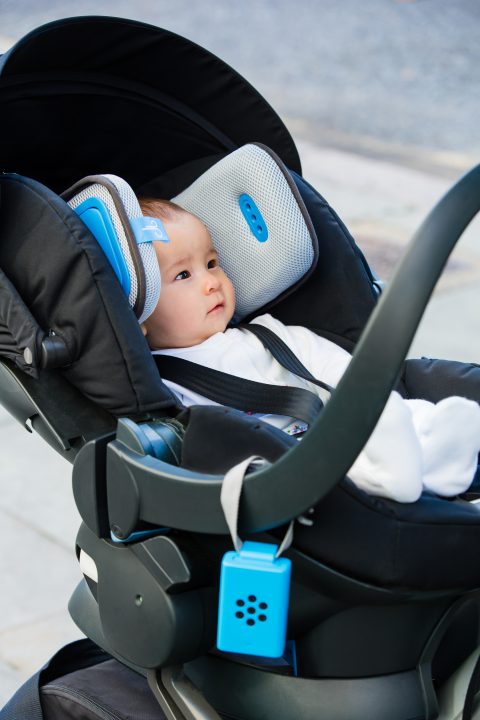Families are always looking for the best ways to protect their babies. Pollution is one the most overlooked issues in the modern world, with infants being especially sensitive. Yosi Romano, inventor of Brizi Baby, has created a solution that will keep babies safe from the everyday harmful effects of pollution while walking through polluted cities and other areas where unclean air is present.
Romano was inspired to invent his product while simply pushing his baby daughter Alma in a stroller around the streets of London. Romano recalls, “I stopped to talk to a friend on the street, and then I noticed the bus near us was just stopping at the station, and it was at the height of Alma’s head while she was asleep in the stroller.”
A television cameraman by day, Romano returned to his home and began researching the subject in depth with the help of his brother, Jacob, a student of biochemistry in Cambridge.
“Today, everyone already knows that the air we breathe in the city is contaminated with exhaust gas from vehicles,” Romano explains. “But it turns out that this air is also full of particles of metal, plastic, silicon and dust, mainly due to the erosion of tires and moving parts of the vehicles.” These particles are concentrated about 30-60 centimetres from the ground, exactly the height of most strollers. Children under the age of four are especially vulnerable, because their immune system is still developing. “It’s almost crazy to think that an older person standing next to a stroller breathes three times as good as a child sitting in a stroller,” he added.
All of these insights drove Romano to act to create a device that would keep baby’s breathing areas safe. Together with the team of Map Project Office, an award-winning product design company based in the heart of London’s version of Silicon Valley, created Brizi Baby.
Brizi Baby is an air purification system designed for baby strollers, designed as a pillow that supports the infant’s head and actually creates a protective layer of clean air around them. The heart of the system has sensors and a fan with an innovative filter, similar to filters used to purify air in incubators of preterm infants in hospitals. Once the sensors detect high air pollution, whether from the emission of cars or particles, the system draws the incoming air from one side, ‘cleans’ it and injects it into the child’s breathing area in the form of a purified air cloud. “From experience and many tests, we designed it so that air flows from a sort of ‘cloud of air’ and not a breeze to the face, which children do not like,” explained Romano.
Romano and his team decided not to settle for the specific effect of each stroller in which they were installed, and to try to attack the broader problem of air pollution in the big cities and metros. The data collected at any given time by the users of Brizi is processed for an application that can be downloaded on smartphones. In turn, the app then updates users with information about polluted streets and surrounding areas in real time. Brizi’s Baby’s patented fan filter delivers an air curtain of 1.5 liters of filtered air every 10 seconds, protecting the child from harmful pollutants, with information all available at the fingertips of parents and other users of the app.
Professor Prashant Kumar of the Centre for Environmental Quality and Air Monitoring at the University of Surrey, conducted tests for the prototype of Brizi and found the product to be effective. “There are two ways to guard against air pollution on the street,” explains Kumar. “The first is simply to choose another, less polluted way, and the second is to use active defence. Brizi does both.”
“We hear a lot about the problem of air pollution, less about solutions,” adds Romano. “In the future, we intend to develop additional products such as an active face mask for the protection of cyclists in the city, but in the meantime, I believe that Brizi Baby is a good solution for those who need it the most – the children.”
Brizi Baby is available for early purchase in Kickstarter beginning September 18.
Find a Home-Based Business to Start-Up >>> Hundreds of Business Listings.














































